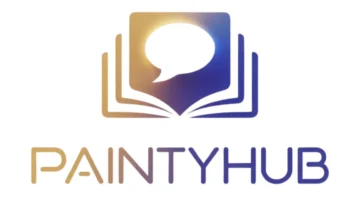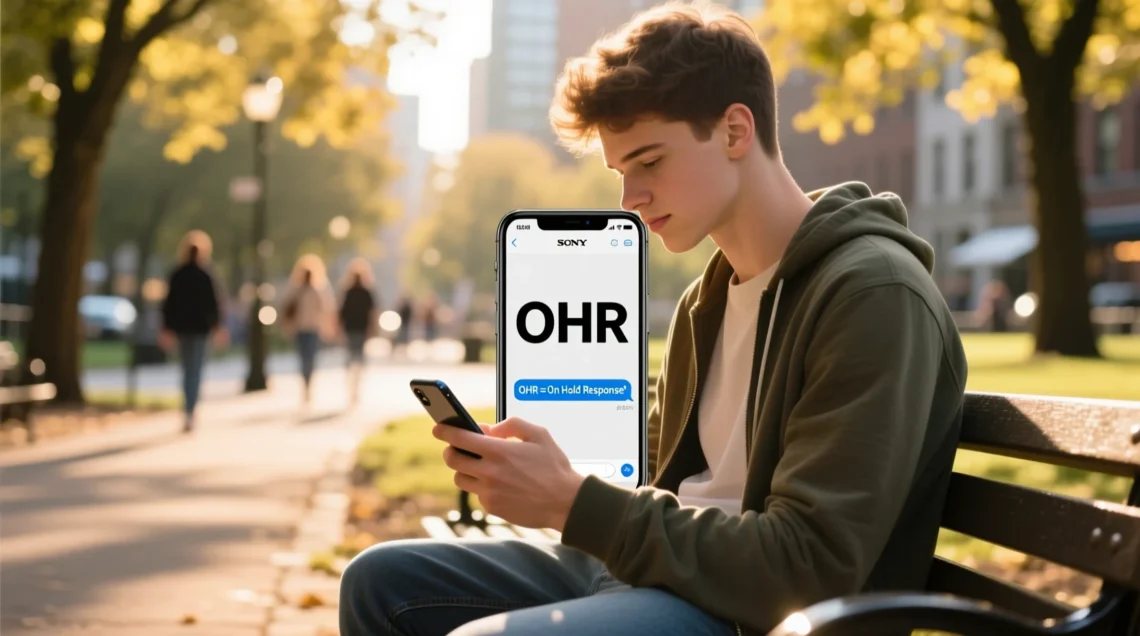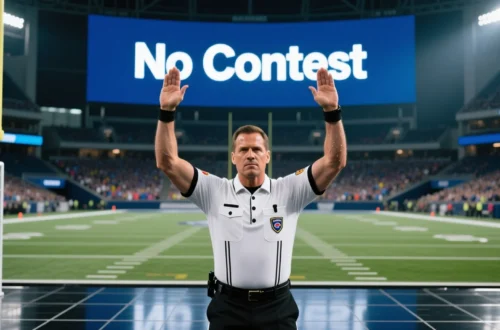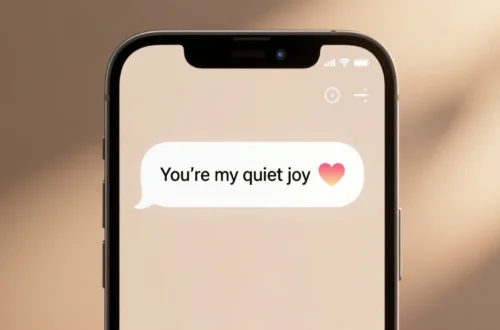In today’s digital conversations, acronyms and shorthand have become an essential part of texting, social media, and online chatting. One such acronym you might have come across is “OHR.”
But what does it really mean?
Understanding slang and text acronyms is crucial. It helps you communicate effectively, avoid confusion, and keep up with trends on platforms like WhatsApp, Instagram, Twitter, and gaming chats.
This article will explain the meaning of OHR, its origin, common usage, and provide examples to help you understand and respond confidently in any context.
Definition & Meaning
The acronym “OHR” is most commonly used in texting and online messaging. Its meaning can vary depending on context, but the primary definitions include:
- “Over Here Right” – indicating presence or location in casual texting.
- “On His/Her Right” – sometimes used in directions or descriptions in chats.
- Less commonly, it can appear in specific online communities with specialized meanings.
Example Dialogue:
Alex: “Where are you?”
Jordan: “OHR, near the coffee shop!”
Sophie: “Who’s sitting beside the teacher?”
Emma: “That’s OHR, next to her friend.”
Key Points:
- Acronym meaning depends on context.
- Most commonly used in casual texting or messaging apps.
- Can indicate location, presence, or position.
LSI Keywords: OHR slang meaning, OHR texting, OHR chat acronym, OHR online, OHR abbreviation
Background & History
Texting acronyms like OHR have evolved as part of the digital communication era. With the rise of smartphones, instant messaging apps, and social media platforms, people began using shortened forms to convey messages quickly.
- Early 2000s: Acronyms became popular in SMS texting.
- 2010s: Spread to social media platforms like Twitter, Instagram, and Facebook.
- Today: Acronyms like OHR are widely recognized in gaming chats, forums, and casual messaging.
Fun Fact: Unlike universal acronyms such as LOL or BRB, OHR is more situational. Its meaning depends heavily on context and conversation flow.
Usage in Various Contexts
Texting
Liam: “Are you coming to the park?”
Mia: “OHR, waiting at the fountain!”
Social Media
- Instagram comment: “OHR at the concert, can’t wait to meet everyone!”
- Twitter: “OHR, at the meetup! Who else is here?”
Gaming Communities
Players might use OHR to indicate their position in a game or location relative to teammates.
Casual Conversations
Ryan: “Who’s on the right side of the stage?”
Mike: “OHR, near the speaker setup.”
Common Misconceptions & Clarifications
Misconceptions:
- Everyone knows it: OHR is not as universal as LOL or BRB; context matters.
- It’s always formal: OHR is casual and informal, rarely used in professional emails.
Dialogue Example:
Alex: “I saw OHR in the chat, what does it mean?”
Jordan: “It depends, usually it’s just ‘over here right.’”
Tip: Always check the conversation context before assuming the meaning.
Similar Terms & Alternatives
| Term | Meaning/Use Case | Notes |
|---|---|---|
| BRB | Be Right Back | Common texting shorthand |
| AFK | Away From Keyboard | Used in gaming chats |
| IRL | In Real Life | Often used to contrast online |
| OHR | Over Here Right / On His/Her Right | Context-specific, situational |
How to Respond to This Term
Responses depend on tone and relationship:
- Casual:
“OHR, I’ll meet you there in 5 minutes!”
- Funny:
“OHR? Hope you didn’t get lost 😂”
- Professional/Neutral:
“Noted. I’ll be there shortly.”
- Privacy-Conscious:
“Could you clarify your location?”
Regional or Cultural Differences
- North America & Europe: Used mainly in casual texting and gaming chats.
- Asia: Less common; recognized primarily among English-speaking online communities.
- Other regions: Usage is niche and context-dependent.
Tip: Always consider regional familiarity before using acronyms like OHR.
Comparison with Similar Terms
| Term | Usage Context | Connotation | Notes |
|---|---|---|---|
| OHR | Texting, online chat | Casual, situational | Indicates location or position |
| BRB | Texting, gaming | Casual | Be Right Back |
| AFK | Gaming | Informal | Away From Keyboard |
| IRL | Online vs offline conversation | Neutral | In Real Life |
Usage in Online Communities & Dating Apps
- Dating Apps: Could indicate location in meetups or events.
- Gaming: Players use OHR to coordinate positions or strategies.
- Forums & Groups: OHR signals readiness or presence, especially in group chats.
Tips:
- Ensure clarity when using OHR in mixed audiences.
- Avoid using it in professional communication.
Hidden or Offensive Meanings
OHR is primarily innocent and situational, with no common offensive interpretations. Misinterpretation usually arises from incorrect context.
Rule of Thumb: OHR is casual and best kept for friends, gaming, or informal chats.
Suitability for Professional Communication
- Not recommended for emails, business chats, or formal documentation.
- Professional alternatives:
- “I am present”
- “I am at the specified location”
- “Available here”
Example:
Instead of “OHR near the lobby,” write, “I am at the lobby as requested.”
FAQs
Q1: What does OHR stand for?
A: Most commonly “Over Here Right” or “On His/Her Right,” depending on context.
Q2: Is OHR used professionally?
A: No, it is mostly casual texting or online chat slang.
Q3: Where is OHR most commonly used?
A: Texting apps, gaming communities, social media chats.
Q4: Can OHR be confusing?
A: Yes, always consider context before interpreting it.
Q5: Are there similar acronyms?
A: Yes, BRB, AFK, IRL are similar casual acronyms.
Q6: Can OHR have multiple meanings?
A: Yes, the exact meaning depends on the conversation and platform.
Q7: Is OHR universal?
A: Not as widely known as LOL or BRB; familiarity is context-dependent.
Conclusion
The acronym OHR is a casual, context-based texting term that indicates location, presence, or position. Understanding its meaning helps you communicate efficiently, avoid confusion, and respond appropriately in messaging, social media, or gaming environments.
Always consider context, audience, and tone. In casual chats, OHR is friendly and situational. In professional communication, use clear alternatives like “I am here” or “Present at the location.”






